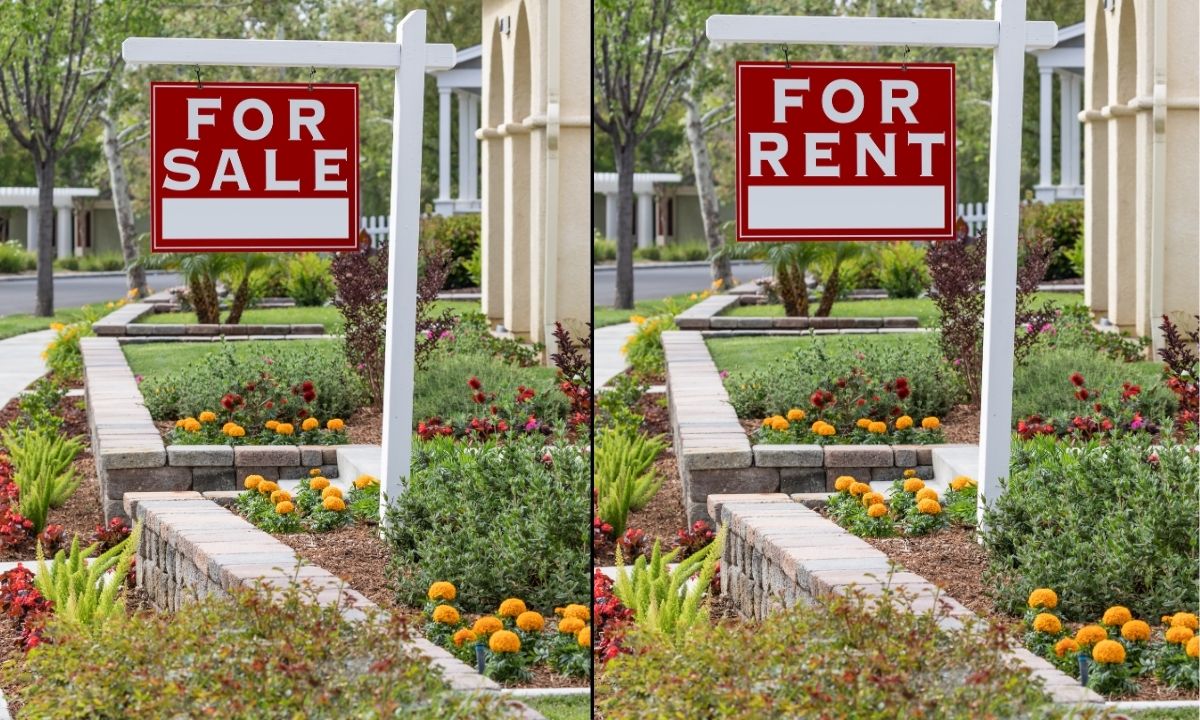 Owning a home is a milestone that goes beyond providing a roof over your head. It’s one of the most significant ways individuals can build wealth over time. Unlike renting, homeownership offers financial and personal rewards that grow with time and care. Let’s discuss five ways owning a home can help build long-term wealth.
Owning a home is a milestone that goes beyond providing a roof over your head. It’s one of the most significant ways individuals can build wealth over time. Unlike renting, homeownership offers financial and personal rewards that grow with time and care. Let’s discuss five ways owning a home can help build long-term wealth.
1. Appreciation Over Time
Real estate historically appreciates in value. While market fluctuations can happen, home prices generally trend upward over the long term. For example, a home purchased for $250,000 today might be worth significantly more 10-20 years later. This appreciation creates equity, which is the difference between the home’s market value and the remaining mortgage balance. Over time, this equity can be a substantial financial asset.
2. Forced Savings Through Mortgage Payments
Unlike rent, which doesn’t build any ownership, each mortgage payment chips away at your loan balance. This process builds equity in your home—a form of forced savings. Over time, you’re essentially transferring money from your pocket into a growing asset. When you eventually sell or refinance, this equity becomes available, providing a solid financial boost.
3. Tax Benefits
Homeownership often comes with significant tax advantages. Mortgage interest and property tax payments are typically deductible on federal tax returns, reducing your taxable income. Some states offer additional tax incentives for homeowners. These deductions can save you thousands of dollars annually, leaving more money in your pocket to invest, save, or use for other financial goals.
4. Rental Income Potential
Owning a home opens the door to passive income opportunities, such as renting out a portion of your property or transforming it into a vacation rental. Whether it’s a spare room or a fully independent unit, rental income can cover your mortgage payments or fund other investments, further enhancing your wealth-building journey.
5. Stability and Wealth Preservation
Homeownership provides financial stability and a hedge against inflation. Rent prices tend to increase over time, while a fixed-rate mortgage payment remains consistent. As your income grows, your housing expense becomes a smaller portion of your budget, leaving more room for savings and investments. Additionally, owning a home gives you control over your property, eliminating the risk of being forced to move due to a landlord’s decisions.
The Long-Term Impact of Homeownership
Owning a home is more than just a personal achievement; it’s a steppingstone to financial security. By building equity, benefiting from tax advantages, and potentially generating rental income, homeowners create wealth that can be passed down through generations. It’s an investment in both your present comfort and your future prosperity.
If you’re considering buying a home, start by understanding your financial goals and exploring mortgage options that fit your needs. The path to homeownership might seem challenging, but the long-term rewards are worth it.
 Purchasing a home is a major life decision, and for many homebuyers, the ideal property may not always come fully finished. An unfinished home offers a unique opportunity to create a space that suits your family’s needs while potentially saving money upfront. Whether you’re looking to save on your initial purchase or enjoy the flexibility of customizing your home, buying an unfinished house could be a great option.
Purchasing a home is a major life decision, and for many homebuyers, the ideal property may not always come fully finished. An unfinished home offers a unique opportunity to create a space that suits your family’s needs while potentially saving money upfront. Whether you’re looking to save on your initial purchase or enjoy the flexibility of customizing your home, buying an unfinished house could be a great option. Buying a home is one of the most significant investments you’ll make in your lifetime. But it’s not just about purchasing the property itself—it’s also about protecting it. Homeowners insurance is a crucial part of homeownership, offering financial protection against damage or loss caused by unexpected events like accidents, natural disasters, or theft.
Buying a home is one of the most significant investments you’ll make in your lifetime. But it’s not just about purchasing the property itself—it’s also about protecting it. Homeowners insurance is a crucial part of homeownership, offering financial protection against damage or loss caused by unexpected events like accidents, natural disasters, or theft. When selling your home, even minor repairs can make a big impact on its value and appeal to buyers. Addressing small issues before listing your property can help you stand out in the market and potentially increase your sales price—without needing to spend much. Here are some small but effective repairs that can help you make a lasting impression on buyers.
When selling your home, even minor repairs can make a big impact on its value and appeal to buyers. Addressing small issues before listing your property can help you stand out in the market and potentially increase your sales price—without needing to spend much. Here are some small but effective repairs that can help you make a lasting impression on buyers. As a first-time homebuyer, one of the biggest decisions you’ll face is whether to buy a cozy condo or invest in a larger home. Both options have their perks, and while condos may initially seem more affordable and convenient, opting for a larger home can offer significant long-term advantages that make it a better investment. Here’s why splurging on a larger home might be the right move for your future.
As a first-time homebuyer, one of the biggest decisions you’ll face is whether to buy a cozy condo or invest in a larger home. Both options have their perks, and while condos may initially seem more affordable and convenient, opting for a larger home can offer significant long-term advantages that make it a better investment. Here’s why splurging on a larger home might be the right move for your future. Moving to a new home can be an exciting adventure, especially for families. However, for children, it can also bring a mix of emotions. As a parent, you play a crucial role in helping your kids transition smoothly. Here are some strategies to prepare your children for the big move while also navigating the process effectively.
Moving to a new home can be an exciting adventure, especially for families. However, for children, it can also bring a mix of emotions. As a parent, you play a crucial role in helping your kids transition smoothly. Here are some strategies to prepare your children for the big move while also navigating the process effectively. When buying a home, there are many expenses to think about, title insurance might seem like just another one on the list. Conversely, this investment is important and can save you a lot of stress and money in the long run. Here’s why the cost of title insurance is well worth it.
When buying a home, there are many expenses to think about, title insurance might seem like just another one on the list. Conversely, this investment is important and can save you a lot of stress and money in the long run. Here’s why the cost of title insurance is well worth it. Mold—it’s a word that can send shivers down the spine of any prospective homeowner. But what happens when an inspector discovers mold in your dream home? Does it mean the deal is off, or are there steps you can take to remedy the situation without walking away? Here’s a guide to help you navigate this common yet serious issue.
Mold—it’s a word that can send shivers down the spine of any prospective homeowner. But what happens when an inspector discovers mold in your dream home? Does it mean the deal is off, or are there steps you can take to remedy the situation without walking away? Here’s a guide to help you navigate this common yet serious issue. Buying a second home is an exciting milestone. Whether it’s a vacation retreat, an investment property, or a future retirement haven, the decision involves many considerations. One of the most important questions you’ll face is whether to rent out your first home or sell it. Both options have their pros and cons, and the right choice depends on your financial goals, market conditions, and personal circumstances. Let’s discuss the key factors to help you make an informed decision.
Buying a second home is an exciting milestone. Whether it’s a vacation retreat, an investment property, or a future retirement haven, the decision involves many considerations. One of the most important questions you’ll face is whether to rent out your first home or sell it. Both options have their pros and cons, and the right choice depends on your financial goals, market conditions, and personal circumstances. Let’s discuss the key factors to help you make an informed decision. When it comes to protecting one of your most significant investments—your home—having the right insurance coverage is essential. Home insurance, also known as homeowners’ insurance, offers financial protection against a wide range of potential risks, from natural disasters to theft. However, not all home insurance policies are created equal. Understanding the different types of home insurance coverage can help you make an informed decision that best suits your needs. We will touch on the various types of home insurance coverage available and what each one entails.
When it comes to protecting one of your most significant investments—your home—having the right insurance coverage is essential. Home insurance, also known as homeowners’ insurance, offers financial protection against a wide range of potential risks, from natural disasters to theft. However, not all home insurance policies are created equal. Understanding the different types of home insurance coverage can help you make an informed decision that best suits your needs. We will touch on the various types of home insurance coverage available and what each one entails.